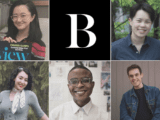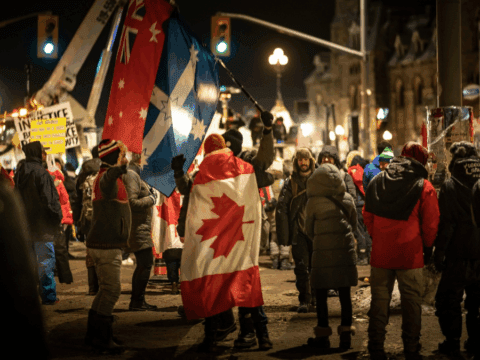I’m a light-skinned brown woman. I can articulate myself in predominantly white environments, and I can present myself in South Asian circumstances just as well. I can fit into western ideals of what diversity should look like — I am exactly the type of minority the mainstream media loves, even though I carry the weight of racism, discrimination and invalidating microaggressions with me everywhere I go.
And that’s the problem: I find myself tangled in a messy web of identity politics.
You may unsubscribe from any of our newsletters at any time.
I want to be recognized as an insightful poet, playwright and advocate regardless of my race. However, my poetry, plays and advocacy are consistently informed by my identity. I’m stuck between carrying the “race card” wherever I go while desperately wanting to wear “woman of colour” like a badge of honour.
As an aspiring writer who will make a living by pitching myself to media outlets, I worry I will be the diversity choice. Do I write too much about feeling disconnected from my ancestry? Would I be a good writer if I couldn’t talk about race? Can I ever untangle the core of who I am from my racial identity?
There’s a fine line between creatively embracing your racialized identity and commodifying yourself for a white audience. Many publications preach about inclusivity but actually want a sugar-coated reflection of race with the intention of educating white readers. I know I’m going to struggle to find the balance between the two for the rest of my career, walking the impossible tightrope of identity politics.
But I know the tension is worth it. I’ve seen the incredible art forged out of pressure, from witnessing Dev Patel evolve into a mainstream Hollywood star, to feeling the raw emotion between Kate (Simone Ashley) and Anthony (Jonathan Bailey) in Bridgerton. I feel a fire in my chest when I read poetry written by Audre Lorde and Amit Majmudar.
I, too, want to create art that matters — vulnerable, honest, unapologetic art that stands the test of time.
More on Broadview:
- I was ashamed to be Chinese and queer, but now I celebrate
- Years of living in a small town nearly ‘white-washed’ me. Then BLM came along.
- 3 Canadians on their complex relationships with their homelands
I have a responsibility to myself and where I come from to write about my identity, including my race and ancestry, regardless of the political climate we live in. Identity politics is a double-edged sword, but it also shapes the writing that has shaped me into who I am.
At the end of the day, I’m not writing to fit into anyone’s narrative of diversity or representation. I’m writing because it’s who I am, and if my best writing is linked to my understanding of my identity, I can’t dilute it in fear of being a token.
***
Alysha Mohamed is a writer and recent graduate of Queen’s University in Kingston, Ont.
This story first appeared in Broadview’s July/August 2022 issue with the title “Identity politics is a double-edged sword.”












